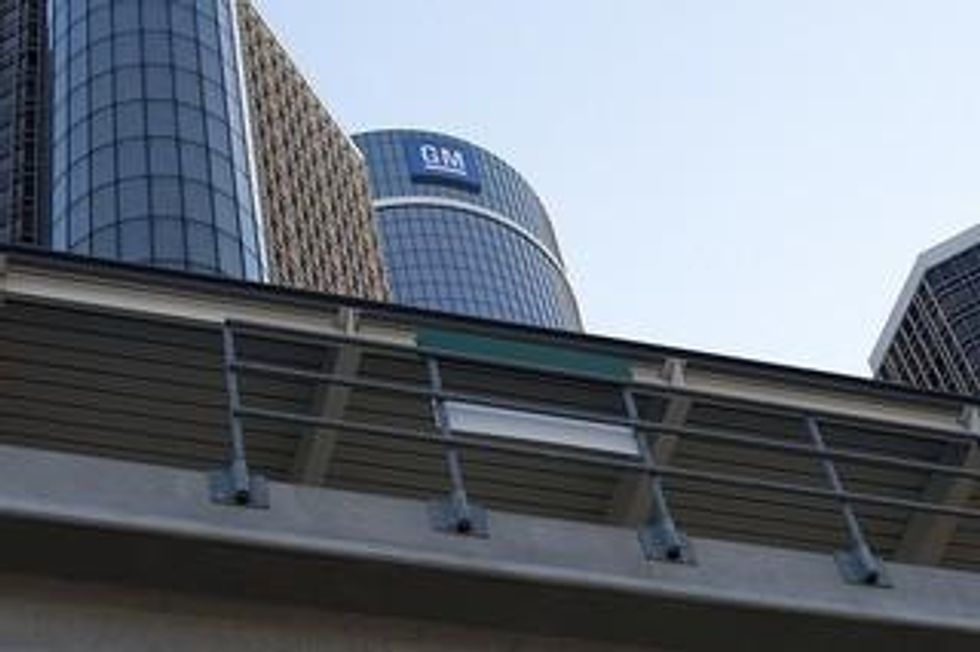Last week, the Congressional Budget Office (CBO) released a report (pdf) with what seemed like good news: the bailout of 2008 - which fronted $700bn in taxpayer funds to prop up the financial institutions that brought the economy to the brink - ended up
cheaper than expected. The price tag was revised down to $21bn from $24bn.
The picture was even rosier once you looked past how much it cost to bailout General Motors and insurance giant AIG. The cost of the bank bailout alone is, in fact, projected to be "almost nothing", as Politico's Morning Money blog put it. So insignificant was the harm done to taxpayers that Politico put "bailout" in quotation marks.
So, the hullabaloo was apparently for nothing. Far from being victims robbed of their tax dollars, the American public is essentially a winner in the bank rescue scheme - a shrewd investor who (involuntarily) played her cards right.
This is the line the banks and the US Treasury would like us to swallow. It is, of course, totally false. The bailout cost us plenty, and continues to do so. Sadly, it is the gift that keeps on giving to the very banks that drove our economy over a cliff - and took trillions in housing wealth, retirement funds and millions of jobs with it.
First of all, $21bn is no bargain. It's a hefty sum for a government we're constantly told is broke - and needs to cut everything from air traffic controllers to Medicare, and from meals for needy seniors to public defenders and housing aid. Broke - but somehow able to front $700bn for reckless, wildly mismanaged banks.
Second, we might not have been so lucky. The government took a massive gamble with our money and demanded almost nothing in return. Even if we didn't max out our potential losses in this particular gamble, we easily could the next time around.
Which brings us to the third way the bailout continues to cost taxpayers: the poisonous legacy of "too big to fail". When rushing to help Citigroup, Bank of America and others, the government told the public, "We have no choice; if one of them goes down, so goes the entire US economy." It also sent an unmistakable message to the biggest banks:
"When you find yourself teetering on the brink of disaster, fear not. We have your back."
After the rescue, we then failed to hold banks accountable. Not a single top financial executive has faced criminal charges for the fraud that inflated and popped the housing bubble. (Way off his talking points in March, Attorney General Eric Holder basically admitted that some banks are just too big to prosecute.) It's the ultimate moral hazard: banks are gambling wildly in the casino, but we're on the hook for their worst losses.
President Obama swears such a bailout will never happen again. But it's Psychology 101 that rewarding a behavior encourages repetition of that behavior. Big banks now have incentives to bet recklessly on the latest asset bubble, safe in the knowledge that if it goes horribly wrong, Uncle Sam will sponsor a soft landing.
Banks also have incentives to get as big as they possibly can, so they'll never be considered small enough to fail. Many are bigger and more systemically important than they were in 2008. They have also spent the last three years - and about $1bn - lobbying to dismantle the Dodd-Frank Act, the financial reform bill passed in 2010. They're also busy drafting legislation that would exempt them from regulation. So it's hard to see how Obama's assurances of "never again" are anything but an empty promise.
Investors and creditors certainly don't believe Obama. They keep pouring money into the largest banks because they know the government would swoop in to save them if it all hit the fan. As a result, big banks get to borrow at extremely low rates, even as they remain stingy on lending to small businesses and homebuyers, which boosts their profit margins.
How big is this implicit subsidy to large banks? Bloomberg News - that bastion of ultra-left thought - calculated that taxpayers give them an astonishing $83bn subsidy every year. Their study, based on calculations by two IMF economists, also found that without taxpayers, many of the largest banks aren't even profitable. As Bloomberg's editorial board wrote:
"[The] billions ... they allegedly earn for their shareholders [are] almost entirely a gift from US taxpayers."
Taxpayers could be doing plenty of more productive things with their money. The billions could be used to stop layoffs of teachers and firefighters, train laid-off workers for new jobs, or hire people to fix our ailing infrastructure. But taxpayers don't get to make these decisions, evidently. They also don't get bailed out when the value of their home suddenly plummets, or when they lose their job or retirement funds in an economic maelstrom they did not cause.
What is to be done? Obviously, if there's another Wall Street bailout, the government needs to attach some serious strings. Force recipients to create a certain number of jobs, lend more to Main Street, and cough up to taxpayers a big percentage of profits when they return to the black. Or have the government take over big, bad, toxic banks and either reap the benefits when they turn a profit, or wind them down.
We could also simply break up the banks. That way, each institution would be small enough to fail without having a destructive domino effect.
In the meantime, we can't fall for the line that the bailout was free of cost. On the contrary, it created a monster: a continual shift of taxpayer dollars to the banks in the form of hidden subsidies. Far from representing a win for the public, the bailout enslaved us to the big banks more than ever before.




